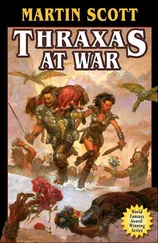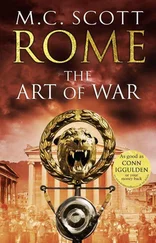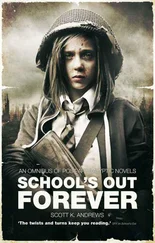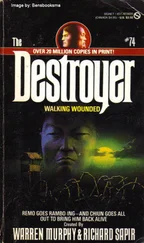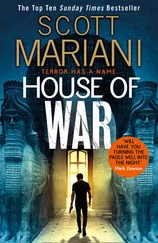“Don’t you speak English?” the lieutenant asked. He looked around. “Can anyone here interpret?”
Opportunity overcame fear in Maurice. He stepped forward and saluted the lieutenant. “I can interpret, lieutenant,” he said, trying very hard to speak English with as much of an American accent as he could.
The American lieutenant and the sergeant turned to him. “Huh?” the lieutenant said. “Who are you?”
“My name is Maurice Bury. I can speak Russian and English. I can translate for you.”
The Americans still looked confused. Maurice fought down the panic that was telling him to run as fast and as far as he could. “Where are you from?” the lieutenant asked.
“Canada.” That particular truth was safest, he knew. But he still felt like he was making a huge mistake.
“Huh. And what’re you doin’ here, Bury?” the lieutenant demanded.
“My family came to Poland when I was a boy.”
“So, you’re a Polish national?”
“No, I’m Canadian.” Maurice thought of Ivan Babiak’s mother, sentenced to Siberia when her son hid from the army. Don’t say anything about Poland or Ukraine. Returning to the USSR is a death sentence. The Red Army considers you a deserter.
“Okay, Bury, tell me what the commissar wants,” said the American lieutenant.
“He wants to see the commandant of the camp,” Maurice answered.
“Geez, Bury’s English ain’t much better’n my Russkie,” said Sergeant Brown. “He must be from the French part’a Canada.”
“Yes!” said Maurice, relieved that they believed his story. Sometimes, the truth serves . “Montreal.”
“Great. That’s all we need. A Frog to translate Russkie to English,” the sergeant muttered.
The lieutenant ignored that. “Why does he want to see the commandant?”
Maurice turned to the commissar, who was stewing in front of the gate. “Why do you want to see the commandant,” he asked in what he hoped sounded like French-accented Russian.
The commissar looked suspicious for a second, then answered “We need to see the names of the internees.”
“They’re not internees in this camp,” Maurice argued. “They’re refugees. Why do you need to see the lists?”
“We are looking for criminals and deserters. Now stop this delaying!”
Maurice turned back to the lieutenant. “They want to see the names of everyone in the camp and round up all the Russians and anyone from the Soviet Union. They want to take them back.”
“No way!” exclaimed the sergeant. “Lieutenant, tell Eye-van there to beat it!”
“That’s enough, Sergeant,” said the lieutenant. “Bury, tell the commissar to back the truck out of the gate. He can come with me to the commandant’s office.”
“Are you sure?” Maurice asked.
“Are you questioning me?” the lieutenant snapped. “Do as you’re told, or I’ll find someone else to translate. Someone who can speak better English.” He turned on his heel and strode toward the commandant’s quarters. The sergeant gestured at the commissar, who followed, with Maurice trotting behind.
What have I done? Maurice asked himself. The lieutenant stomped up the wooden steps, but a guard would let neither him nor the Russian commissar enter. Then again, what would any other translator have done? At least he was close to whatever would happen, he told himself. He would have the earliest warning if anything happened—if the Russians were about to round up deserters like himself.
He folded his arms so no one could see his hands shaking. Why am I so scared? I’ve been in worse danger before. Many times.
But he had never been so close to freedom before.
The commandant’s door opened and a voice barked a command he did not understand. One of the guards motioned him and the commissar inside.
The office was dim after the morning sunlight. It was plain; a corporal sat behind a small metal desk that held a radio, a telephone and a small pile of papers. A short, thin man with wire-rim glasses, he gestured them through another door behind him. In the inner office, the commandant sat behind a battered wooden desk. A little sign on the edge of the desk read “Lt. Col. Whitney-Coates, Commandant.”
“That the translator?” Commandant Whitney-Coates asked.
“Yes, sir,” said the lieutenant.
“Okay, translator, tell the commissar that we’ve checked the records. There are no refugees here from the Soviet Union, nor are there any deserters from the Red Army. If we find any, we will be sure to contact the appropriate United Nations authorities.”
Maurice had a little trouble understanding the commandant’s formal speech, but he translated the meaning to the commissar. He could tell the Russian didn’t believe it.
“I demand to see the lists of names of all the internees,” the commissar said, calmly and formally.
“They are not ‘internees,’” Maurice repeated. He relayed the demand to the Americans, who frowned even more deeply.
“Tell comrade… what was his name?”
“I am comrade Commissar Igor Maksov,” he said in heavily accented English. Damn , thought Maurice. He speaks some English .
“Well, comrade commissar, our records are none of your business. I tell you, we have no citizens of the Soviet Union here. Translator, tell him.”
Maurice repeated the commandant’s words.
“If true, no reason to hide records,” said Maksov in English. Why hadn’t he just spoken English at the gate? Maurice wondered.
“That will not be necessary, commissar,” the commandant said. “Now, you are dismissed.” He stood.
Maksov did not move. “I not military. Not under military command. I poleetical.”
The lieutenant had had enough. He took Maksov by the arm and pulled him out of the commandant’s office, then out of the building. “Well, this camp is under military command right now, Ee-gor. Now go on, back to wherever your base is, and we’ll keep you informed through regular channels.”
The commandant followed them out the door and stood at the top of the steps to his office shed, watching the lieutenant’s actions intently but not interfering.
Outside, Maksov shook himself free of the lieutenant’s grip, straightened his uniform and marched through the gates to his truck without a look back. Only when he stood on the running board did he glare at the commandant. Maurice heard him bark an order at the driver. With grinding gears and swirling dust, the truck roared down the road.
“He’ll be back before long, sir,” said the lieutenant.
“We’re ready,” answered the commandant. He came down the steps to look at Maurice. “What’s your name, interpreter?”
Commandant Whitney-Coates was not a tall man, and his hair was receding over his forehead. His brown U.S. Army uniform was immaculate, the creases in his pants sharp as bayonets. He looked up into Maurice’s eyes. Maurice hoped he saw some kindness in the commandant’s eyes. “I am Maurice Bury, Canadian citizen,” he said.
“Canadian, huh?” The commandant did not look like he believed him.
“He’s French, sir,” the sergeant from the gate spoke up, surprising Maurice. “From Montreal. You know, Quee-beck. They’re all French over there. That’s why he talks funny.”
The commandant nodded. “You don’t sound French. But that doesn’t matter. What languages do you speak, Mr. Bury?”
“English, German, Russian, Polish,” he replied, hesitating before he added, “and Ukrainian.”
“But not French?”
Maurice nearly choked. “Oh, yes… of course. I did not think that would be much use here.” Maurice hoped the commandant could not see his heart pounding under his shirt.
Читать дальше


